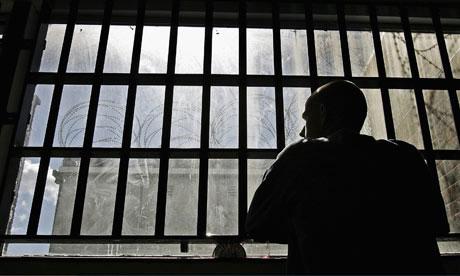O Wretched Man
So I find it to be a law that when I want to do right, evil lies close at hand. For I delight in the law of God, in my inner being, but I see in my members another law waging war against the law of my mind and making me captive to the law of sin that dwells in my members. (Romans 7:21-23)
Interpreters debate the meaning of Paul’s words in Romans 7:14-25. Are we to apply these statements to a Christian or a non-Christian? Could a Christian utter these words? Perhaps a better question is, are these the words of an unregenerate man?
Did Paul as a Pharisee ever have such thoughts? As a friend wisely pointed out, the Pharisees were hypocrites. They condemned Jesus for healing on the Sabbath and then planned to murder Him on the Sabbath. “The thing that I hate, that I do,” would not have been the cry of their hearts. These are the words of one terribly aware of his condemnation under a just Law. David could certainly have uttered these words. Paul could not have entertained such thoughts as he incarcerated and murdered Christians.
Paul is expressing the “hunger for righteousness” which the Law brings about, by the Spirit, in a contrite heart. The Law had carried out this ministry for centuries in Israel and through her ministry convicted many Gentile hearts as well. The Law brings enlightenment concerning sin, but that is the limit of its power. And such enlightenment is often the awaking of monsters (as James Jordan has observed) who then plunge themselves into deeper darkness. They see their sin but do not repent, and it then becomes high-handed, sin with full knowledge that it is sin (Numbers 15:30). That is the flipside of the ministry of the Law. (I believe that in AD70, after one generation of mercy, Jesus, now enthroned, might have said, “Do not forgive them, Father; they know exactly what they are doing.” This is exactly the scenario facing Western culture right now.)
This hunger for righteousness, this desperate awareness of the void within, the chasm between desire to fulfill the Covenant and one’s natural ability, would be the difference between the hate-filled Pharisees and those Jews and God-fearing Gentiles who received Christ. Those who reject this position of tension, this state of desperation, are filled with seven worse demons.
The state that Paul describes is thus the state of the “blessed,” Temple vessels waiting to be plundered from the house of the strong man and filled to the brim with the righteousness of Christ.
Paul’s point is that the Spirit of Christ is not a revised but still powerless moral code. It is a satisfaction of this hunger for righteousness, as Jesus promised in His most famous sermon.
“Blessed are those who hunger and thirst for righteousness, for they shall be satisfied.” (Matthew 5:6)
The chapter break between 7 and 8 is thus an episode cliffhanger. The words of Jesus had come to pass. Those who heard the Gospel and believed were New Creations. The Law had formed them and now they had been filled.
“They shall neither hunger anymore nor thirst anymore…” (Revelation 7:16)
A little while ago I posted a video which I found very helpful.


























